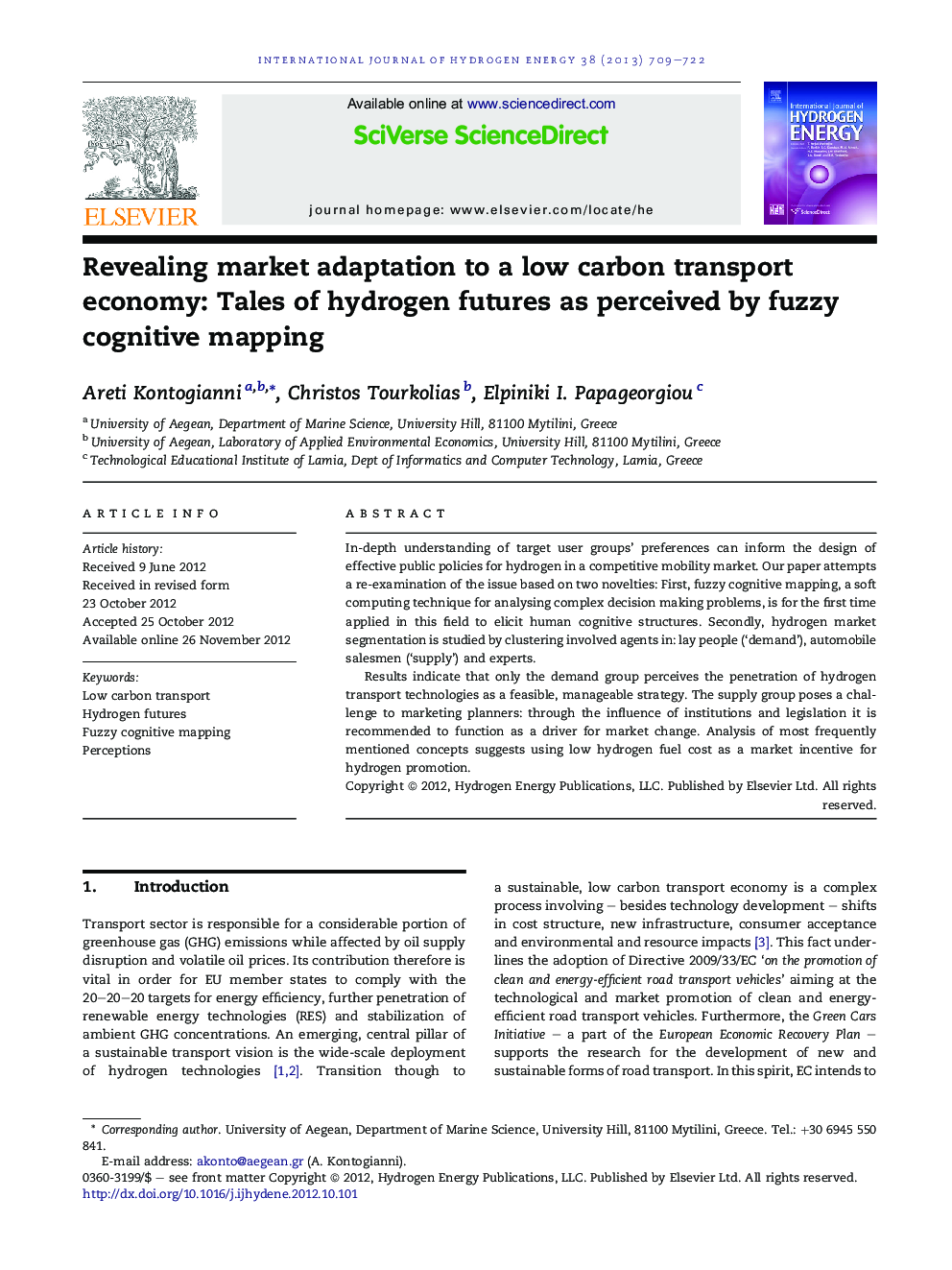| Article ID | Journal | Published Year | Pages | File Type |
|---|---|---|---|---|
| 1282038 | International Journal of Hydrogen Energy | 2013 | 14 Pages |
In-depth understanding of target user groups' preferences can inform the design of effective public policies for hydrogen in a competitive mobility market. Our paper attempts a re-examination of the issue based on two novelties: First, fuzzy cognitive mapping, a soft computing technique for analysing complex decision making problems, is for the first time applied in this field to elicit human cognitive structures. Secondly, hydrogen market segmentation is studied by clustering involved agents in: lay people (‘demand’), automobile salesmen (‘supply’) and experts.Results indicate that only the demand group perceives the penetration of hydrogen transport technologies as a feasible, manageable strategy. The supply group poses a challenge to marketing planners: through the influence of institutions and legislation it is recommended to function as a driver for market change. Analysis of most frequently mentioned concepts suggests using low hydrogen fuel cost as a market incentive for hydrogen promotion.
► We model public perceptions on hydrogen future using fuzzy cognitive mapping. ► We examine and compare three collective maps. ► Only demand group perceives hydrogen future as a feasible strategy. ► Low hydrogen fuel cost dominates all other concepts as market incentive.
